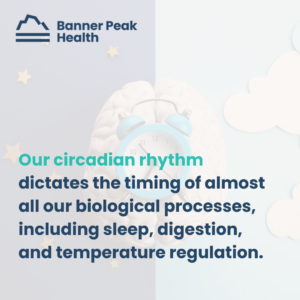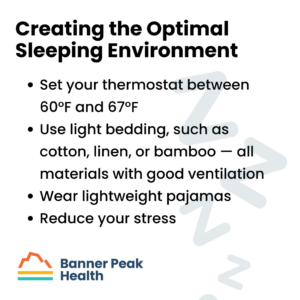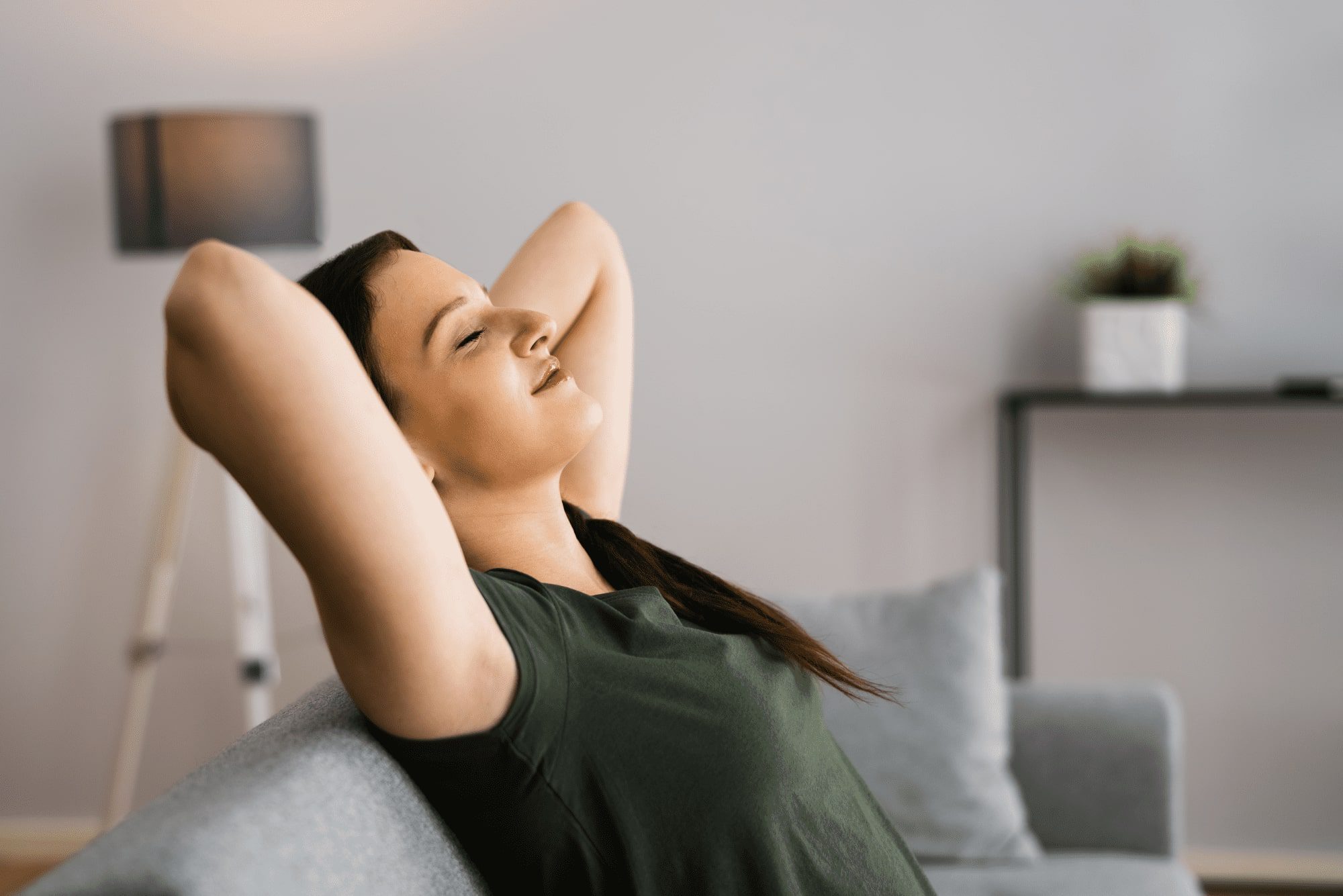Do you often wake up in the middle of the night sweating, throwing the blankets off, turning up your fan, unable to find relief? Do you get up in the morning exhausted, asking, “Why do I get so hot when I sleep?”
You’re not alone.
Fourteen percent of American adults say they always feel too hot when they sleep, and another 43% say they “occasionally” do. What causes all this overheating? What can you do about it?
How Your Body Regulates Its Temperature During Sleep
Our circadian rhythm dictates the timing of almost all our biological processes, including sleep, digestion, and temperature regulation.
If our circadian rhythm deviates from its norm, we may feel too hot or cold while we sleep.
Common Contributing Factors
Several factors can throw our circadian rhythm out of whack.
We (humans) are inefficient from a metabolic perspective. We’re analogous to an incandescent lightbulb — about 75% of our energy intake from ingested calories goes toward heat generation rather than motion or growth.
Thus, anything that increases our metabolism generates excess heat. Common factors include:
- Evening exercise (within four hours of bedtime), which jump-starts our metabolism
- Some medications
- Infections with low-grade fevers
- Certain cancers
- Hormonal conditions, including:
- Menopause, which reduces estrogen levels
- The luteal phase of the menstrual cycle, which can increase the body’s temperature by around 0.3°F (0.7℃)
- Pregnancy, which increases progesterone levels
- Hyperthyroidism
Although some factors are unavoidable, you can strive to increase your sleep comfort. We’ll explore some methods for cooling down at night. However, if your symptoms persist, you should contact your doctor for an exploration of the underlying cause.
Creating the Optimal Sleeping Environment
Our circadian rhythm includes a drop in core temperature of up to 1.8°F over the course of the night. Excess heat can interfere with this process and hamper our sleep. Follow these suggestions to stay more comfortable at night:
- Set your thermostat between 60°F and 67°F
- Use light bedding, such as cotton, linen, or bamboo — all materials with good ventilation
- Wear lightweight pajamas
- Reduce your stress:
- Exercise earlier in the day
- Spend time outside
- Meditate
- Avoid caffeine and alcohol
- Regularly connect with friends and family
Today’s Takeaways
If you’re struggling to answer the question, “Why do I get so hot when I sleep?” practice the tips in this post and see if you can find relief.
Here’s a quick summary:
Determine why you’re overheating:
- Exercising too late?
- Side effect of a medication?
- Do you have an infection or a fever?
- Do you have a hormonal imbalance?
Try these tips to find relief:
- Set your thermostat between 60℉ and 67℉
- Use lightweight bedding, such as cotton, linen, or bamboo
- Wear lightweight pajamas
- Reduce your stress:
- Exercise earlier in the day
- Spend time outside
- Meditate
- Avoid caffeine and alcohol
- Regularly connect with friends and family
If none of those help, ask your physician about other solutions.
Remember, healthy sleep is crucial to overall wellness. Don’t underestimate its importance, and don’t procrastinate getting help.
We at Banner Peak Health are happy to help optimize your sleep. Contact us today to discuss solutions.

Barry Rotman, MD
For over 30 years in medicine, Dr. Rotman has dedicated himself to excellence. With patients’ health as his top priority, he opened his own concierge medical practice in 2007 to practice medicine in a way that lets him truly serve their best interests.





